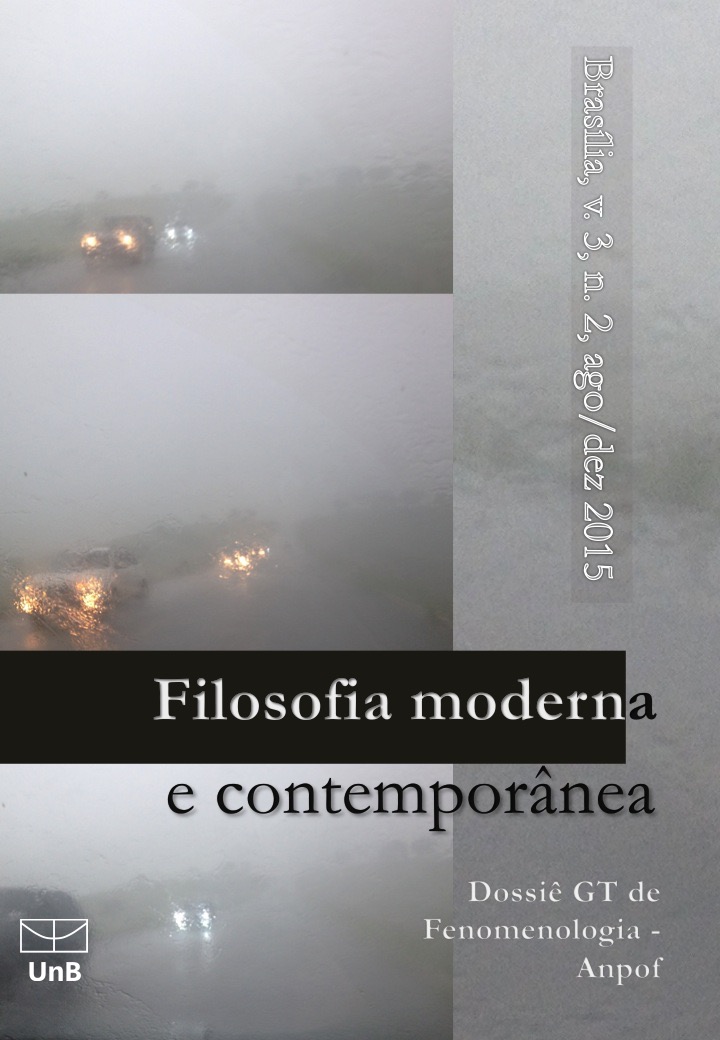Max Stirner, os limites do sujeito na esquerda hegeliana e um ponto de virada na filosofia
DOI:
https://doi.org/10.26512/rfmc.v3i2.12519Palabras clave:
Apropriação, Modernidade, Hegelianismo, SubjetividadeResumen
Compreendendo Max Stirner no contexto do movimento jovem hegeliano podemos observar que seu trabalho filosófico põe-se em diálogo com seu tempo de forma crítica. Stirner vê no desenvolvimento intelectual de sua época um espaço para superar não só o além fora de nós, em Deus, como também o além em nós, no Homem (humanidade). Seus contemporâneos encarregaram-se bem da primeira tarefa, mas não da segunda, incorrendo no retorno a uma sacralidade, proclamando, no lugar de um reino teológico, um reino antropológico. A partir daí, então, Stirner desenvolve a filosofia do único, baseada no ato de apropriação das ideias abstratas pelo indivíduo corpóreo particular. Com essa formulação o autor radicaliza a questão do sujeito em sua crítica da Modernidade quando também oferece à filosofia ferramentas para uma elaboração (pós)Moderna, no caminho destranscendentalista, em direção à filosofia contemporânea.
Descargas
Citas
BAUER, B., “Die Fähigkeit der heutigen Juden und Christen, frei zu warden”. In: _____. Feldzüge der r einen Kritik. Frankfurt: Suhrkamp Verlang, 1968a, p. 175-195.
_____. “Die gute Sache der Freiheit und meine eigene Angelegenheit”. In: _____. Feldzüge der r einen Kritik. Frankfurt: Suhrkamp Verlang, 1968b, p. 91-152.
_____. “The Genus and the Crowd”. Trad. Michael P. Malloy. In: The Philosophical Forum, Boston, Massachusetts, vol. 8, nº 2-4, 1978, p. 126-134.
_____. “Hinrichs politische Vorlesungen”. In: _____. Feldzüge der reinen Kritik. Frankfurt: Suhrkamp Verlang, 1968c, p. 196-199.
_____. The Trumpet of the Last Judgment Against Hegel the Atheist and Anti-Christ: An Ultimatum. Tr a d . L a w r e n c e Stepelevich. Lewiston/Lampeter/Queenston: The Edwin Mellen Press, 1989.
ENGELS, F., “Ludwig Feuerbach e o Fim da Filosofia Clássica Alemã”. In: Marx/Engels ”“ Obras Escolhidas ”“ Volume 3. São Paulo, SP: Editora Alfa-Omega, s/d, p. 169-207.
FEUERBACH, L., A E s s ê n c i a d o Cristianismo. Trad. José da Silva Brandão. Petrópolis, RJ: Vozes, 2009.
KLOTZ, H. C., “Subjetividade no idealismo alemão”. In: Revista Inquietude, Goiânia, GO: UFG, vol. 1, n. 1, jan/jul, 2010, p. 145-162.
LYOTARD, J.-F., A Condição Pós-Moderna. Trad. Ricardo Corrêa Barbosa. Rio de Janeiro, RJ: José Olympio, 2011.
MARX, K., Sobre a Questão Judaica. Trad. Wanda Caldeira Brant. São Paulo, SP: Boitempo, 2010.
MARX, K., ENGELS, F., A Ideologia Alemã. Trad. Rubens Enderle, Nélio Schneider e Luciano Cavini Martorano. São Paulo, SP: Boitempo, 2007.
NIETZSCHE, F., Além do Bem e do Mal.Trad. Paulo César de Souza. São Paulo: Companhia das Letras, 2005.
_____. Ecce Homo. Trad. Paulo César de Souza. São Paulo: Companhia das Letras, 2008.
RORTY, R., Contingência, ironia e solidariedade. Trad. Vera Ribeiro. São Paulo, SP: Martins Fontes, 2007.
_____. “Um Mundo Sem Substâncias ou Essências”. Trad. Cristina Magro e Antônio Marcos Pereira. In: MAGRO, C., PEREIRA, A. C. (Orgs.), Pragmatismo: a filosofia da criação e da mudança. Belo Horizonte, MG: Editora UFMG, 2000, p. 53-92.
SOUZA, J. C. de, A Q u e s t ã o d a Individualidade: a crítica do humano e do social na polêmica Stirner-Marx. Campinas, SP: Editora da UNICAMP, 1993.
_____. Ascensão e Queda do Sujeito no Movimento Jovem Hegeliano. Salvador, BA: Centro Editorial e Didático da UFBA, 1992.
STEPELEVICH, L., The Young Hegelians: An Anthology. New York: Humanity Books, 1999.
_ _ _ _ _ . “ H e g e l a n d S t i r n e r ” . I n : MOGGACH, Douglas (Org.), The Left Hegelians: New Philosophical and Political Perspectives. Cambridge: Cambridge University Press, 2005, p. 166-175.
STIRNER, M., O Único e sua Propriedade. Trad. João Barrento. São Paulo, SP: Martins Fontes, 2009.
_____. “Stirner’s Critics”. Trad. Frederick M. Gordon. In: The Philosophical Forum, Boston, Massachusetts, vol. 8, nº 2-4, 1978, p. 66-80.
Descargas
Publicado
Cómo citar
Número
Sección
Licencia
Los derechos de autor para artículos publicados en esta revista son del autor, con derechos de primera publicación para la revista. Debido a que aparecen en esta revista de acceso público, los artículos son de uso gratuito, con atribuciones propias, en aplicaciones educativas y no comerciales.


